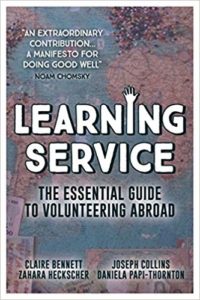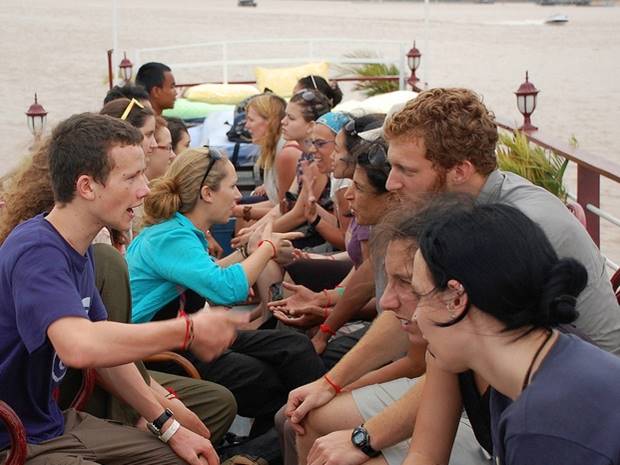 When I was younger I was the stereotype of the “student who wanted to change the world.”
When I was younger I was the stereotype of the “student who wanted to change the world.”
I first volunteered abroad as a teenager, and I loved the combination of adventure and doing good that it seemed to offer. I volunteered on and off for a good part of a decade, starting off with three months in Nepal and working up to three years in Cambodia, but the more I got into it, the more I peeled back the layers and realised that it was a field much more complicated than it originally seemed. I waded into the issues and controversies of international development, helping to found an NGO but also becoming very critical of the way most foreign aid worked. I started to see that good intentions didn’t always lead to good outcomes. And in fact, I witnessed a great deal of volunteer programs that were making issues worse.
This came to a head during my long term stint of volunteering in Cambodia, where the problem of orphanages being created entirely as tourist attractions was just starting to emerge. It was becoming apparent that the proliferation of orphanages was not in response to a growing number of destitute children, but to the growing demand for volunteering with children. It was over this issue that I connected with the Daniela Papi-Thornton, whose inspirational story about transitioning her organization away from tokenistic voluntourism to educational travel had attracted attention in both the travel and development sectors. I moved back to Nepal, where I discovered that the problem of fake orphanages was nearly identical to the situation in Cambodia – child trafficking was being incentivised by voluntourism.

This depressing backdrop led Daniela and I to attempt to reconceptualize international volunteering. The good intentions of all the eager young travelers set on making a difference was surely something to be applauded, when the alternative is hopelessness and apathy. But we wanted to find out how was it possible to avoid the misfiring of those intentions to ensure this goodwill could be channeled into effective action. In researching this question, we found that something that all impactful volunteering had in common was that the volunteers embraced learning as a central part of their role and took action that was humble, mindful and self-reflective.
Thus learning service was born. Flipping the term “service learning” (what volunteering is usually called in schools and educational institutions) on its head, we aimed to emphasise that learning needed to come before any service is designed or undertaken, and continue throughout the experience. In other words, we wanted to move from a model where a potential volunteer leaps off a plane and announces: “Hi, I’m here to help you!” towards a model where they are saying: “Hi, I am here to learn from you, about if and how I can be of help, either now or in the future.”
The thinking and research we did on this topic culminated with the recent publication of our book, Learning Service: The Essential Guide to Volunteer Travel. Teaming up with two other passionate co-authors, we attempt to lay out a path for potential volunteers to ensure that the choices they make and the action they take are fulfilling and valuable for both themselves and the cause they want to support.
So let’s go back to me. Maybe you would expect that after all I have learned that I would, as the wiser and more knowledgeable party, look back on my former self, the student who wanted to change the world, as naive or foolish. Instead I continue to embrace the identity. Despite no longer being in formal education, I still consider myself “a student who wants to change the world.” Because if we fully embrace the philosophy of learning service, we all should be students of the world, ever-learning and striving for change.
 About the Author: Claire Bennett is a co-author of Learning Service: The Essential Guide to Volunteer Travel. You can find out more about Learning Service from their website: www.learningservice.info or follow them on Facebook, Twitter or Instagram.
About the Author: Claire Bennett is a co-author of Learning Service: The Essential Guide to Volunteer Travel. You can find out more about Learning Service from their website: www.learningservice.info or follow them on Facebook, Twitter or Instagram.
